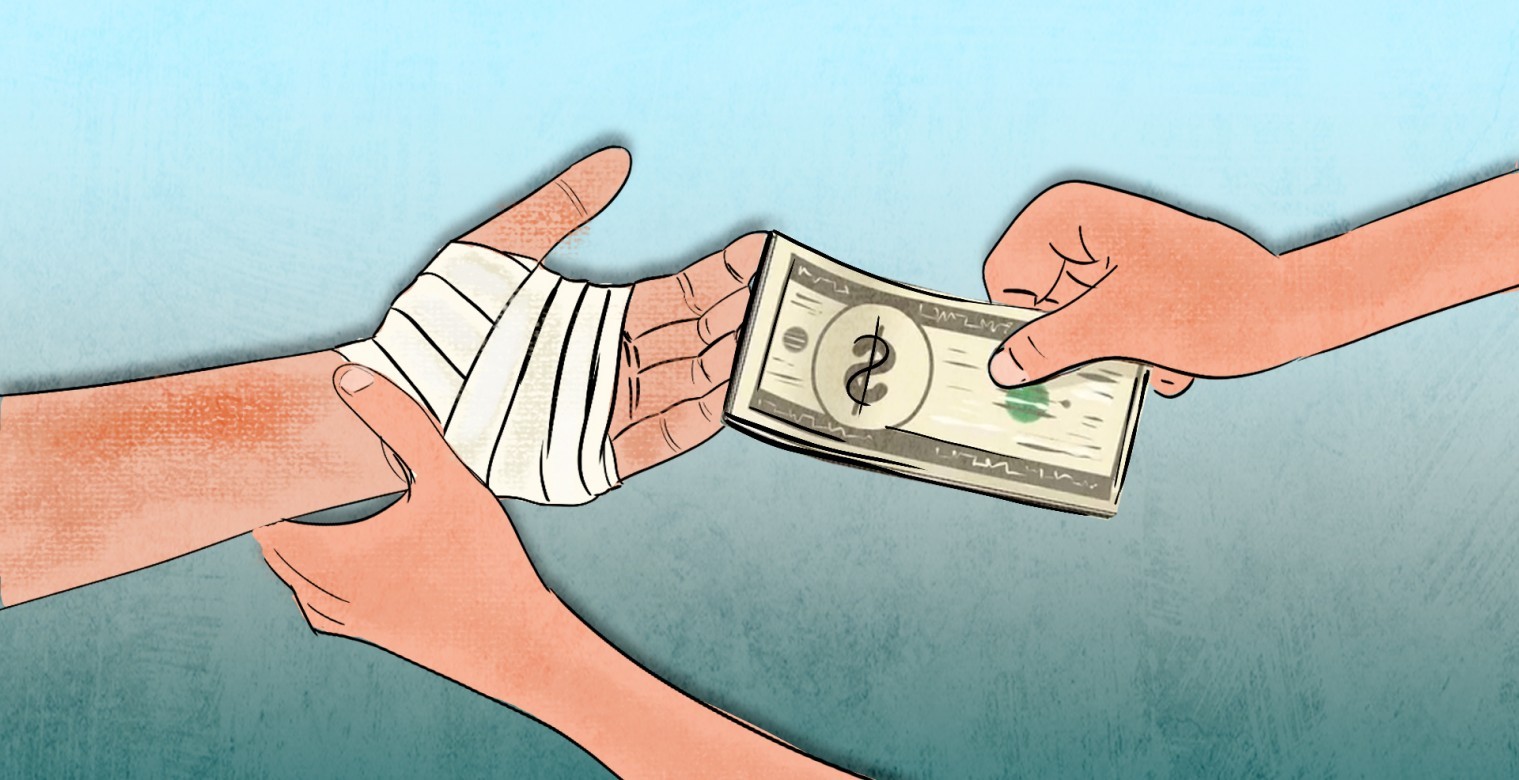Salam Alejla
An employee at a currency exchange store in Gaza City refused to accept the purchase of US dollar notes in exchange for shekels from Ms. Rania Abdelraouf, despite her having received a money transfer in the same currency from her daughter living in Belgium through the same exchange store. The store refused to buy the dollars after two days, claiming that the notes were old and laundered out. Rania said: This process is like twisting the arm of the customers.
Abdelraouf, a resident of Gaza City, said in an interview with "Last Story": "I was blackmailed in the true sense of the word, and I did not understand at first what the exchange store meant by "laundered dollars". Although I told him that I received this amount from him, he replied in a grumpy tone (either we deduct 10 shekels from each laundered dollar note or you go to another currency exchange store). I was faced with two difficult options and had to accept his offer."
In this case, the woman lost the equivalent of $50 for the sale of $500 in currency commonly referred to as "laundered dollars" among currency exchange stores in Gaza.
The term "laundered dollar" refers to an official dollar but as a result of poor storage it shows signs of mold. Some people resort to washing them with materials that cause them to lose their normal shine and turn white in color, resulting in a loss of 5-10% of their original value in the Gaza Strip, according to financial advisor Hassan Bakr.
In similar circumstances to what happened with Rania, Ali Ibrahim (a pseudonym) tells "Last Story" about his exploitation by one of the currency exchange stores. He says, "I am used to dealing with a particular exchange store because the money transfers only come to me through it. But instead of dealing with me flexibly because I am one of his customers, I find him controlling the transfer money value according to his mood as if I was begging him".
Ibrahim believes that some currency exchange stores are accustomed to treating customers as needy individuals who can be exploited without supervision, ranging from laundered dollars and emergency discounts on market value, to controlling exchange rates and exchanging the transferred currency, and ending with deducting the value of the transfer that the sending entity had already paid.
Relevant authorities are received many complaints about currency exchange stores exploiting citizens, sometimes by reducing the value of currency under the pretext that the dollar is laundered, and sometimes by replacing the transferred currency with another currency, according to Mohammed Mansoura, deputy governor of the Palestinian Monetary Authority.
In light of this, the Ministry of National Economy in Gaza recently issued Administrative Decision No. 43 of 2020 to protect financial transfers and regulate exchange rates. The decision obliges banks and currency exchange stores in the sector to pay the value of financial transfers received from abroad to the customer in their transferred currency without exchanging it for another currency, and to deal with white/blue dollar bills without discrimination or increase/decrease in the buying or selling price.
The decision of the Ministry of Economy, which was passed after reviewing the provisions of the Basic Law of 2003 and its amendments, Consumer Protection Law No. 2 of 2005 and its amendments, and Companies Law No. 7 of 2012 and its amendments, stipulated that they will receive any complaint related to a violation of the decision, and the necessary legal action will be taken against the violating party.
Regarding the role of the Monetary Authority in monitoring and reducing complaints, Mansoura told "Last story" that while they regulate and monitor the work of financial institutions under their supervision, they have issued instructions to the banking sector that specify the work regulations and general provisions that currency exchange stores must comply with when providing this service.
Among these regulations are delivering the transfer to the customer in the same currency unless the beneficiary requests otherwise in writing, and publishing the exchange rates for financial transfers prominently at the company's headquarters.
However, on the other hand, Mansoura admits that complaints are still being received by the Monetary Authority, without revealing the number of complaints, stating that his authority takes legal action against institutions that do not comply with the instructions.
Despite these legal measures, citizens are still falling victim to manipulation and exploitation by currency exchange stores, without effective supervision, especially in the absence of clarification from competent authorities regarding the nature of the penalties publicly.





